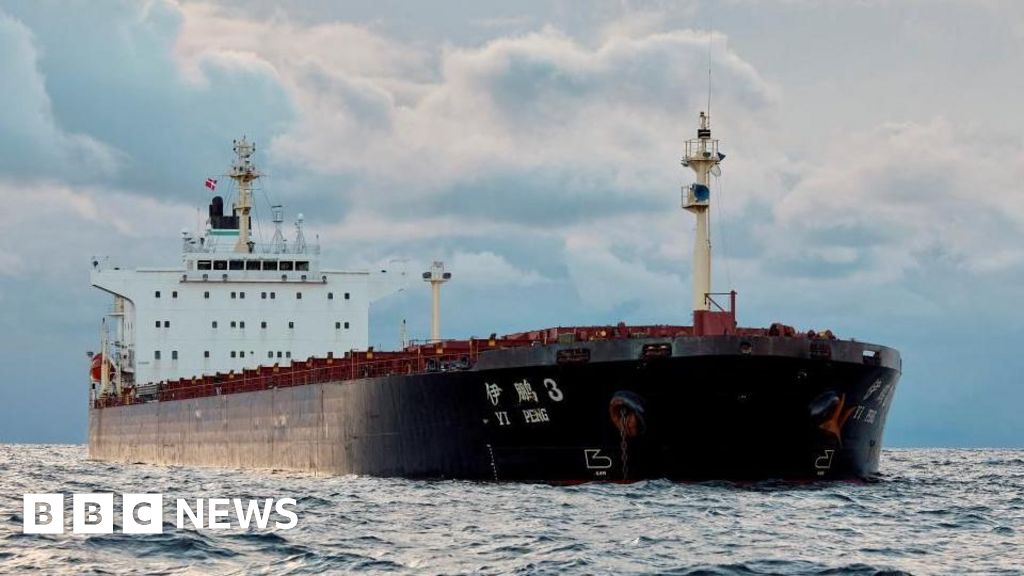Sweden has formally asked China to co-operate with an investigation into damage to two cables in the Baltic Sea after a Chinese ship was linked to the incidents.
The cables – one linking Sweden to Lithuania, the other linking Finland to Germany – were damaged in Swedish territorial waters in the Baltic Sea on 17 and 18 November.
A Chinese ship, the Yi Peng Three, is believed to have been in the area at the time and has since been anchored in international waters off Denmark.
China has denied any involvement in sabotage.
The Yi Peng Three left the Russian port of Ust-Luga, west of St Petersburg, on 15 November.
Early on 17 November, the Arelion cable between the Swedish island of Gotland and Lithuania was damaged.
The following day, the C-Lion 1 cable between the Finnish capital Helsinki and the German port of Rostock was severed.
Data from ship tracking websites suggest the Yi Peng Three sailed over the cables at around the time that each was cut.
According to the Wall Street Journal, investigators suspect the ship deliberately damaged the cables by dropping and dragging its anchor along the seabed for more than 160km (100 miles).
The ship has been in the Kattegat strait – a passage between Sweden and Denmark that connects the Baltic Sea to the North Sea – since 19 November and is being monitored by the Danish navy.
On Thursday, Swedish Prime Minister Ulf Kristersson told a press conference that his government had “sent a formal request to China to co-operate with Swedish authorities in order to create clarity on what has happened”.
“We think it’s extremely important to find out exactly what happened and, of course, we expect also China to comply with the request we have sent,” he said.
He also reiterated an earlier request for the ship to move back into Swedish waters so the ship could be searched as part of the investigation, though added that he was not making an “accusation” of any sort.
The period since Russia’s full-fledged invasion of Ukraine in February 2022 has seen heightened tension in the Baltic Sea and a number of incidents involving damage to undersea infrastructure.
In September 2022, a series of explosions blew holes in the two Nord Stream gas pipelines between western Europe and Russia, and in October 2023 damage was done to an undersea telecoms cable between Estonia and Sweden.
Speaking last week, German Defence Minister Boris Pistorius said of the latest incident that “nobody believes that these cables were cut accidentally”, though he did not specify who he believed was responsible.
Russia has rejected suggestions it could have been involved as “absurd” and “laughable”.


